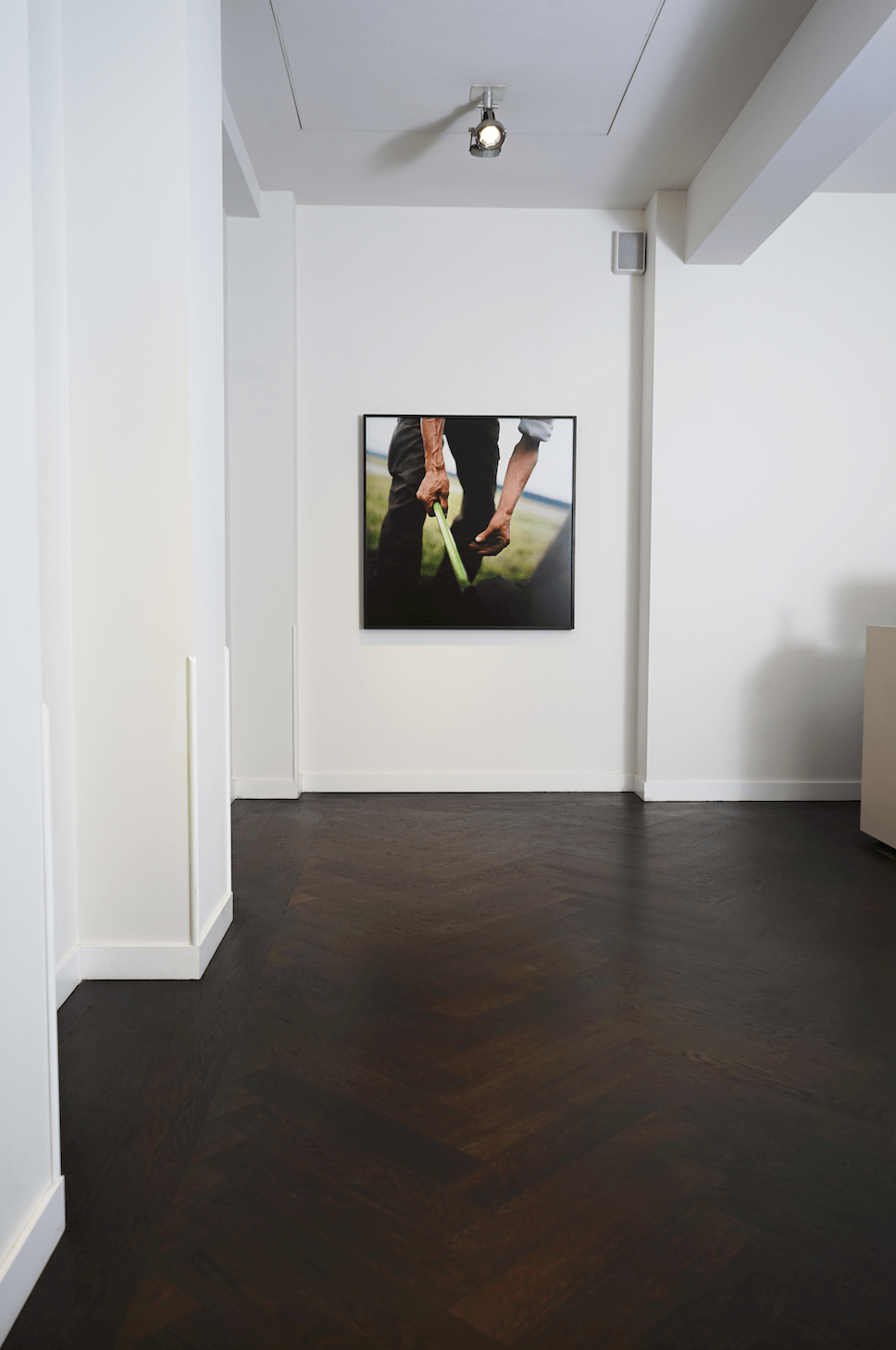

Allan Sekula (b. 1951-2013)
Farmer threshing Szymany, Poland

The full title of this poignant photo is Farmer threshing grass at abandoned airport used by CIA for transport of clandestine “high value” terrorism suspects. Szymany, Poland, July 2009. That is a long title for a picture of a digging farmer.
Allan Sekula’s life was centred on socially engaged art photography. In 2002, due to his reputation as an empathic photographer, the Spanish government asked him to document the suffering caused by Prestige, a leaking oil tanker off the coast of Galicia.
A recurring theme in Sekula’s work is his fascination with the vast amount of people who, directly or indirectly, focused their energy on the Military-Industrial Complex. It’s a term first used by Dwight D. Eisenhower in his 1961 farewell speech as President of the United States, warning the world that politics and the arms industry were growing increasingly intertwined. In 1973, Sekula broke through to a wider audience with the photo series Aerospace Folktales. It depicts workers who are photographed in their free time, for example behind the wheel of their first self-earned car or enjoying their break with their lunch boxes. All the while others are working behind the assembly line, crafting nuclear weapons or jet engines that are supposed to carry the projectiles across continents. The photos distinctly picture other times. These are memories of the prosperous 1950s, when you could still rely on the good intentions of the government, almost without hesitation. But things aren’t always what they seem and Sekula subtly exposes the wafer-thin pretension of civilization held up to us by the authorities. The first scandals started presenting themselves, from the My-Lai massacres in Vietnam to Watergate and the Three Mile Island nuclear reactor that partially melted away (to name only a few scandals that were initiated, denied or downplayed by the government).
Hence the title of Farmer Threshing. It is made in Poland, Sekula’s homeland. The year is 2009 and not much has changed. We see a farmer digging his spade deep into the earth. He digs into the ground and tosses the grass to make room for a new fence. There doesn’t seem to be anything wrong here; it’s a beautiful composition of a worker with muscular arms. However, he works in a so-called blind spot, a place that can’t be found on a map. In the background, you can see the outline of a runway, where a Hercules cargo plane lands a few times every month. Poland, a country that is by no means unsullied by internment camps, grants permission to US military and government units to hold prisoners (“high-value” terrorism suspects) here and to harshly interrogate them at this blind spot. Time will tell whether or not we will eventually classify these practices as government scandals, but the methods are certainly not undisputed. Suspicion is growing due to the fact that all of this takes place on the edge of a primeval forest somewhere in Poland – far away, hidden from plain sight, and obstructed from onlookers and ordinary citizens like you and me.
